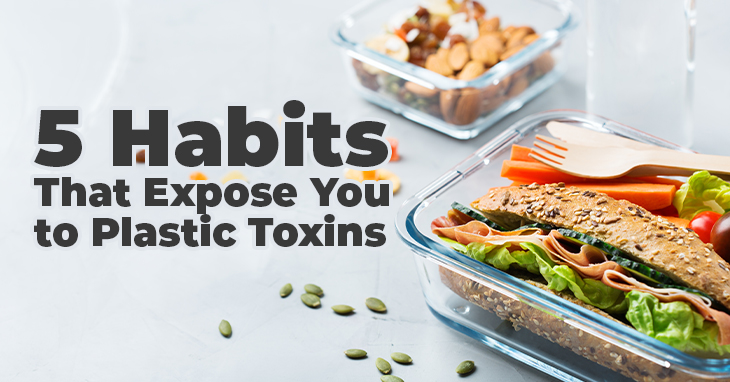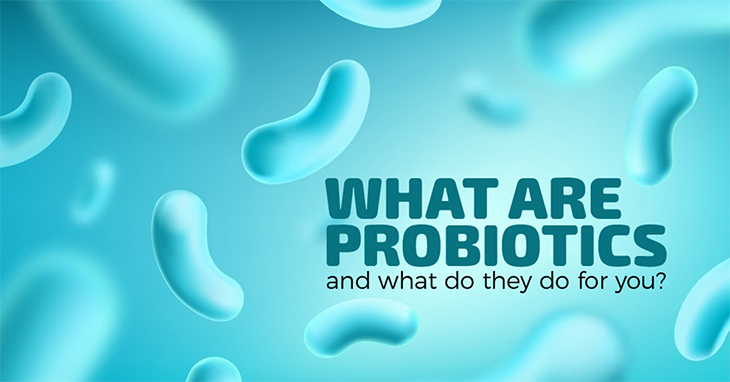5 Everyday Habits That Could Be Exposing You to Plastic Toxins
Category: Healthy Home

We’ve all heard about the plastic problem…
But what if I told you it’s no longer just about pollution —it’s about you and your family’s health.
Microplastics—tiny bits of plastic smaller than a grain of sand—have now been found in:
- Human placentas (yes, the one that nourishes a growing baby!)
- Breast milk
- Even a newborn baby’s first poop
If that doesn’t give you pause, this might: they’ve also been found in our food, water, the air we breathe… and even inside the human brain.
Yup. It’s officially everywhere. And it’s no longer a “someday” concern.
What Are Microplastics… and Why Should We Care?
Microplastics come from the breakdown of bigger plastic items—water bottles, food containers, packaging, even synthetic clothing. They’re invisible to the eye, but not to your body.
And they don’t just sit there.
Microplastics can carry chemicals like BPA and phthalates, which mess with your hormones, disrupt fertility, increase cancer risk, and have been linked to obesity, diabetes, and developmental issues in children.

So What Can You Actually Do?
Here’s the good news:
You don’t have to live off-grid or give up your favorite snacks.
Just start with these smart, simple swaps to reduce your plastic exposure— especially the kind that gets into your food and home.

 5 Real-Life Tips to Reduce Microplastic Exposure
5 Real-Life Tips to Reduce Microplastic Exposure
1. Ditch plastic in the microwave.
Even “microwave-safe” plastic can leach chemicals when heated.
Heat + plastic = not a great combo. Use glass or stainless steel instead.
Use glass or stainless steel instead.
2. Rethink your water bottle.
Bottled water often contains microplastics—not just from the bottle, but from the nylon filters used to purify it. Switch to a reusable stainless steel or glass bottle.
Switch to a reusable stainless steel or glass bottle.
3. Stop dishwashing plastic.
Dishwashers break down plastic faster, increasing chemical release into your food later. Wash by hand (or better yet, replace with glass!).
Wash by hand (or better yet, replace with glass!).

4. Watch your cans.
Most canned foods are lined with plastic resins that can contain BPA or similar chemicals. Choose glass jars, tetra packs, or fresh when you can.
Choose glass jars, tetra packs, or fresh when you can.
5. Go natural where you can.
Synthetic fabrics shed plastic fibers into the air and water. Wear and wash cotton, wool, or linen, and vacuum with a HEPA filter to reduce plastic dust.
Wear and wash cotton, wool, or linen, and vacuum with a HEPA filter to reduce plastic dust.
Let’s be real— you can’t eliminate plastic completely. But you can make smarter everyday choices to protect your health and your family.
Think of this like brushing your teeth. You don’t have to be perfect— you just have to show up consistently.
Want more tips to detox your home and clean up your routine?
We covered all that and more in our Vitality For Life Show: The Dirty Truth About Everyday Products.
Catch the replay now in the Wellness Resource Center

Small choices matter—and what you learn in this webcast could change the way you shop, eat, and live… for the better.
To your good health!
Jerry / Jerry@Fit4LifeLLC.com / 703-626-0774
Want a Personalized Nutrition Plan?
![]() Contact me for product support
Contact me for product support
![]() Take the Me+ology Assessment to see what supplements are designed specifically for you!
Take the Me+ology Assessment to see what supplements are designed specifically for you!



Facebook Comments